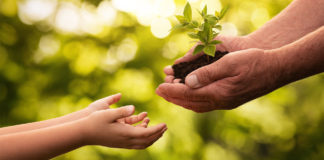The exclusive prayer: Who should we address when we pray?
The stakes are high when it comes to identifying the one to whom we should pray, and we can discover who by answering an apparently simple question: Can we expect prayers to be heard no matter who we address them to?
A story of imperfection and grace
Sometimes I think I was born with a magnifying glass in my hand, one through which I critically scrutinize everything I do and say and which relentlessly magnifies every imperfection.
Sports betting: from entertainment to addiction
Sports betting may seem to be a harmless way to unwind, but the relationship between winning and losing is, mostly, not in the player’s favour. Moreover, the road from entertainment to addiction can prove to be a short one, while the recovery process is arduous and long.
The discovery of our century: t = t
"There is a time for everything, and a season for every activity under the heavens" (Ecclesiastes 3:1).
Dealing with passive-aggressive behaviour
You may have heard of passive-aggressive behaviour, but maybe you don't know exactly what it means. In this article, we examine what its characteristics are, and how to deal with people who exhibit this type of behaviour.
Christ in them
I notice people, and passionately collect their stories. My favourite stories include those small cracks that allow one to peek inside another soul, those moments when their voice is almost imperceptibly altered, the eyes light up for a reason I do not know, and their gestures are unexpected.
Does shopping addiction really exist?
Maria is 21 years old. She is in her third year at the Academy of Economic Studies and has been working and paying rent for a year. Ever since she reached economic independence, she started going out in the city and being very concerned about the way she looks.
Envy and its opposite
Beginning with Cain and Abel, history has known famous and less famous stories woven around the devastating experience of envy.
What is depression, and why should it be treated?
Imagine yourself entering a shopping mall with your sunglasses on. Even though the lights are shining brightly, you cannot see them. Everything around you is dark and cold. But as soon as you remove your glasses, the world comes alive: the windows of the shops shine attractively, you see the brightly-coloured clothes, and the dazzling screen of the phone blinks with an incoming...
Is there a cure? The painful limitations of the fight against paedophilia
Little over a decade ago, a highly acclaimed British documentary filmmaker, Louis Theroux, stepped into the midst of 500 paedophiles admitted to the psychiatric hospital in Coalinga, California, trying to find out if the complex treatment the convicts had to go through was really working.
How to grow together with God
We’d been married only a few weeks when we discovered that growing our spirituality as a couple was going to be much more complicated than the instructions on the packet suggested.
COVID-19: What do we do after the relaxation of restrictions?
After the authorities in different countries announced a relaxation of the restrictions, people started to impatiently waiting for that, maybe even with plans to recover last bits of a confiscated spring.
Gambling’s dark underbelly
Problem gambling in Australia and New Zealand is an issue seldom talked about, but we ignore it at our peril.
Cohabiting before marriage reduces the risk of divorce: true or false?
More and more people are choosing cohabitation over marriage. Many young people believe that cohabiting helps them to make better decisions about marriage by giving the couple a chance to "practise" before making a lifelong commitment. There is also a belief that cohabiting before marriage reduces the likelihood of marital problems or divorce.
COVID-19: What I have learned from my Italian friends
Antonio is a grandfather of 69 years old. For 40 years, he has worked as an internist. Just a few days ago, his plans for a quiet retirement suddenly changed. Out of his own free will, Antonio decided to return to work as a doctor in order to help patients suffering from COVID-19.


























